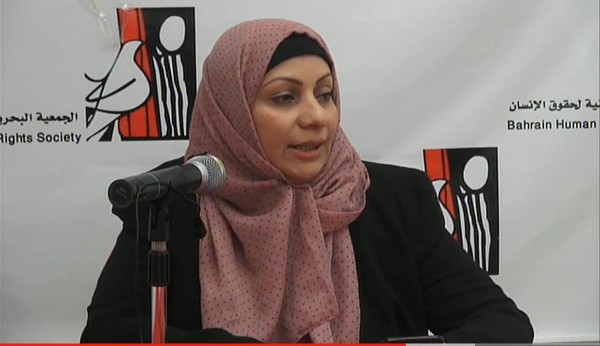Bahrain: Security agency summons online activist who exposed torture in plea to king
[vc_row][vc_column][vc_column_text]

Yusuf-Al-Jamri has been summoned to the National Security Agency after exposing torture in a plea to the country’s king.
* Yusuf Al-Jamri made a plea to King Hamad about the torture he suffered at the hands of the National Security Agency on Thursday 3 August
* Immediately afterwards, the NSA summoned him for interrogations
* The NSA interrogated Yusuf three times this week, tortured him, and threatened him with rape
* The NSA is responsible for the torture and sexual assault of detainees including women’s rights defender Ebtisam Al-Sayegh
* The NSA was given arrest powers in January 2017. Its president is Sheikh Talal Al Khalifa, a Bahraini royal and Sandhurst graduate
The National Security Agency has summoned online activist Yusuf Al-Jamri for interrogation after he published a video message on Thursday 3 August to King Hamad of Bahrain accusing them of torturing him. The NSA is the subject of many recent torture allegations and is headed by Sheikh Talal Al Khalifa, a Bahraini royal and Sandhurst graduate.
Al-Jamri states in his message to King Hamad that the National Security Agency threatened him with rape and reprisals against his family, and insulted him and his faith. He says to the King, “Your Majesty, I was tortured. …The interrogator said that he acts with the highest authority after your Majesty’s, and nothing can stop him.”
Since publishing his message to the King at 6.26 PM (Bahrain time) on 3 August, Al-Jamri was immediately summoned to the NSA again.
The NSA repeatedly called Al-Jamri’s wife urging him to present himself at the Muharraq Security Complex. Al-Jamri shared images of the many calls on his Twitter.
Al-Jamri was summoned to for interrogation at the Muharraq Security Complex by the National Security Agency on 1st and 2nd August. The summons may have been because of his activism on social media. On 20 July, he put out a series of tweets publicising the UK’s criticisms of Bahrain’s human rights situation in the Foreign & Commonwealth Office’s Human Rights and Democracy report.
“Bahrain’s government routinely resorts to harassment to silence human rights defenders. The international community — especially the UK — must demand that Bahrain treats its citizens with respect and end threats of reprisals and outright torture,” Sean Gallagher, Index on Censorship, said.
Abuses by the National Security Agency
Human rights defender Ebtisam Al-Sayegh alleges she was tortured and sexually abused by NSA agents in May 2017. Amnesty International reported on her torture: “When she arrived [at Muharraq], she was immediately blindfolded, and in the subsequent hours, she was sexually assaulted, beaten all over her body, kicked in the stomach and kept standing for most of the seven hours she was being interrogated.”
Ebtisam Al-Sayegh told Amnesty: “The men told me ‘no one can protect you’. They took away my humanity, I was weak prey to them.”
On 3 July, Al-Sayegh was re-arrested. The family believes the NSA was responsible for the arrest. She remains in detention, and has been charged under the anti-terrorism law. She is at high risk of ill-treatment, and her health deteriorated significantly during her detention.
National Security Agency: Further Information
In January, the King of Bahrain empowered the NSA with law enforcement powers, reversing one of the only Bahrain Independent Commission of Inquiry (BICI) reforms his government had implemented.
Sheikh Talal bin Mohammad Al Khalifa was appointed Director of the NSA in August 2016. Sheikh Talal, a graduate of the Royal Military Academy Sandhurst, is the son of a former Minister of Interior and brother to Sheikh Fawaz, the ambassador in London.
The NSA has offices in the Muharraq Security Complex. BIRD has recorded a growing number of torture allegations and arbitrary detentions by the NSA since April 2017.
Systematic torture by the NSA in 2011 was recorded by the BICI and led to the stripping of their powers. In April 2011, businessman Karim Al-Fakhrawi was tortured to death in NSA custody.[/vc_column_text][/vc_column][/vc_row][vc_row][vc_column][vc_basic_grid post_type=”post” max_items=”12″ style=”load-more” items_per_page=”4″ element_width=”6″ grid_id=”vc_gid:1501848639305-96eb2c27-f595-4″ taxonomies=”716″][/vc_column][/vc_row]

